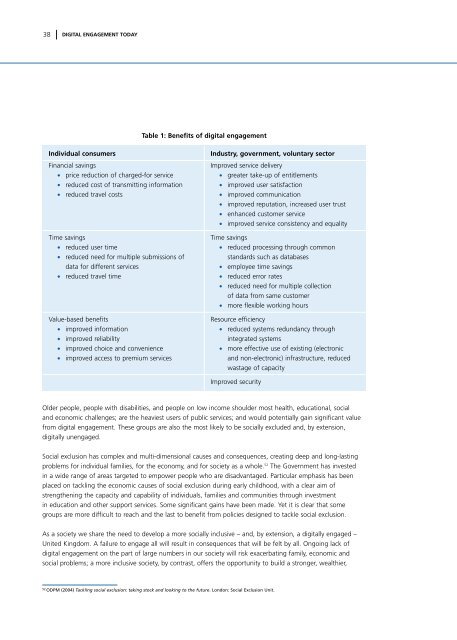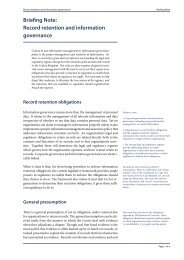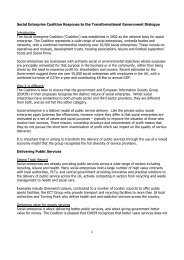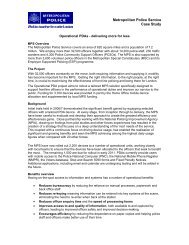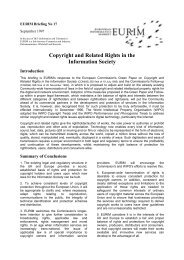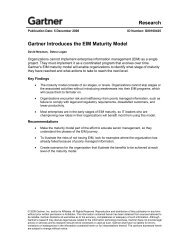Enabling a Digitally United Kingdom - Umic
Enabling a Digitally United Kingdom - Umic
Enabling a Digitally United Kingdom - Umic
You also want an ePaper? Increase the reach of your titles
YUMPU automatically turns print PDFs into web optimized ePapers that Google loves.
38 DIGITAL ENGAGEMENT TODAY<br />
Table 1: Benefits of digital engagement<br />
Individual consumers<br />
Industry, government, voluntary sector<br />
Financial savings<br />
Improved service delivery<br />
• price reduction of charged-for service • greater take-up of entitlements<br />
• reduced cost of transmitting information • improved user satisfaction<br />
• reduced travel costs • improved communication<br />
• improved reputation, increased user trust<br />
• enhanced customer service<br />
• improved service consistency and equality<br />
Time savings<br />
Time savings<br />
• reduced user time • reduced processing through common<br />
• reduced need for multiple submissions of standards such as databases<br />
data for different services • employee time savings<br />
• reduced travel time • reduced error rates<br />
• reduced need for multiple collection<br />
of data from same customer<br />
• more flexible working hours<br />
Value-based benefits<br />
Resource efficiency<br />
• improved information • reduced systems redundancy through<br />
• improved reliability integrated systems<br />
• improved choice and convenience • more effective use of existing (electronic<br />
• improved access to premium services and non-electronic) infrastructure, reduced<br />
wastage of capacity<br />
Improved security<br />
Older people, people with disabilities, and people on low income shoulder most health, educational, social<br />
and economic challenges; are the heaviest users of public services; and would potentially gain significant value<br />
from digital engagement. These groups are also the most likely to be socially excluded and, by extension,<br />
digitally unengaged.<br />
Social exclusion has complex and multi-dimensional causes and consequences, creating deep and long-lasting<br />
problems for individual families, for the economy, and for society as a whole. 52 The Government has invested<br />
in a wide range of areas targeted to empower people who are disadvantaged. Particular emphasis has been<br />
placed on tackling the economic causes of social exclusion during early childhood, with a clear aim of<br />
strengthening the capacity and capability of individuals, families and communities through investment<br />
in education and other support services. Some significant gains have been made. Yet it is clear that some<br />
groups are more difficult to reach and the last to benefit from policies designed to tackle social exclusion.<br />
As a society we share the need to develop a more socially inclusive – and, by extension, a digitally engaged –<br />
<strong>United</strong> <strong>Kingdom</strong>. A failure to engage all will result in consequences that will be felt by all. Ongoing lack of<br />
digital engagement on the part of large numbers in our society will risk exacerbating family, economic and<br />
social problems; a more inclusive society, by contrast, offers the opportunity to build a stronger, wealthier,<br />
52 ODPM (2004) Tackling social exclusion: taking stock and looking to the future. London: Social Exclusion Unit.


